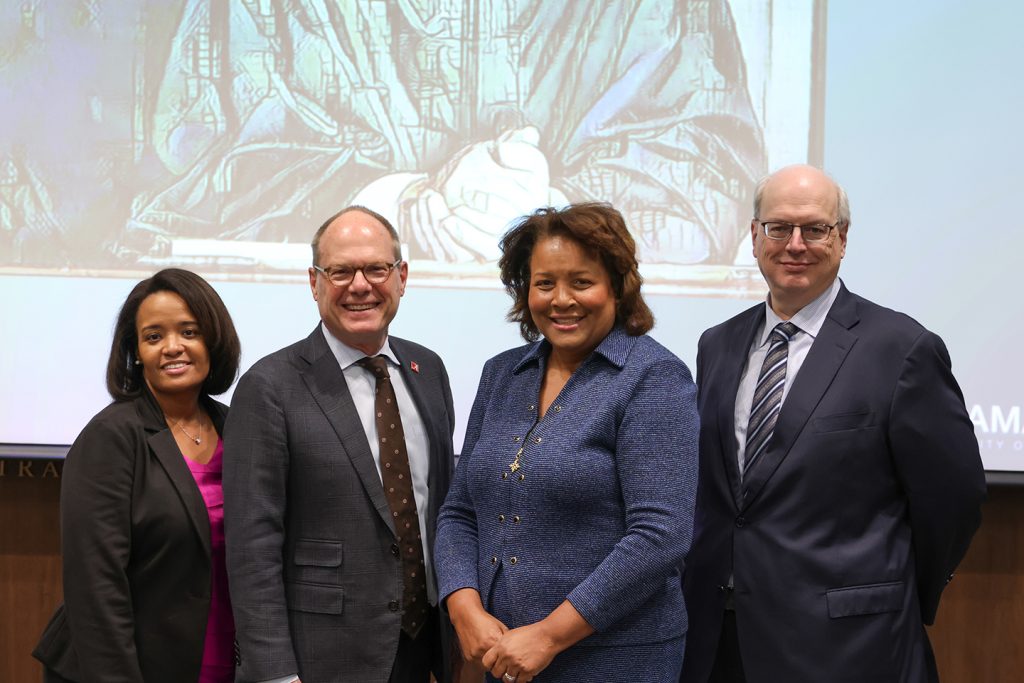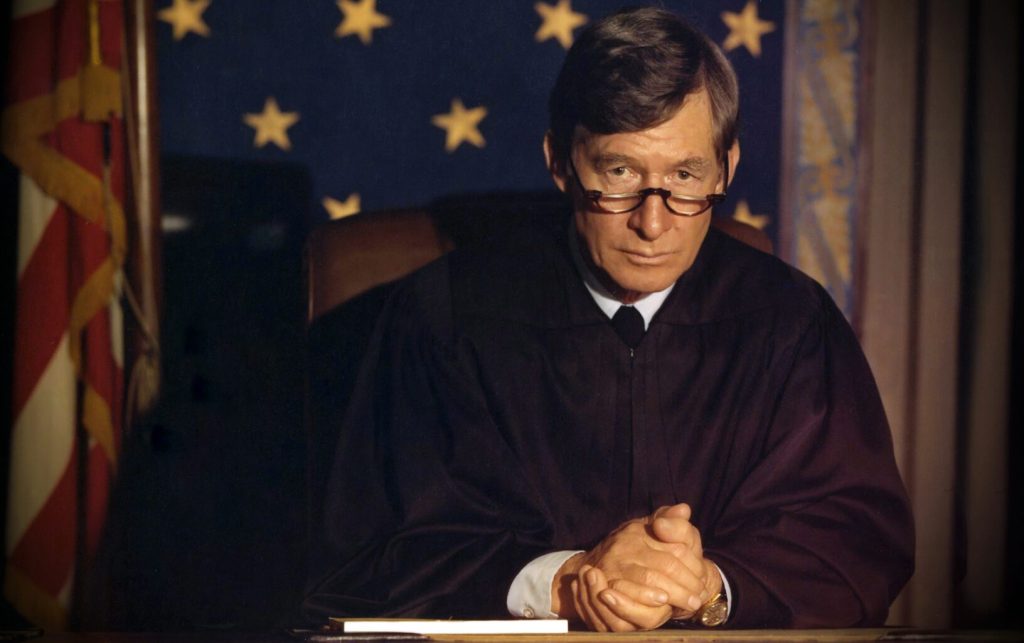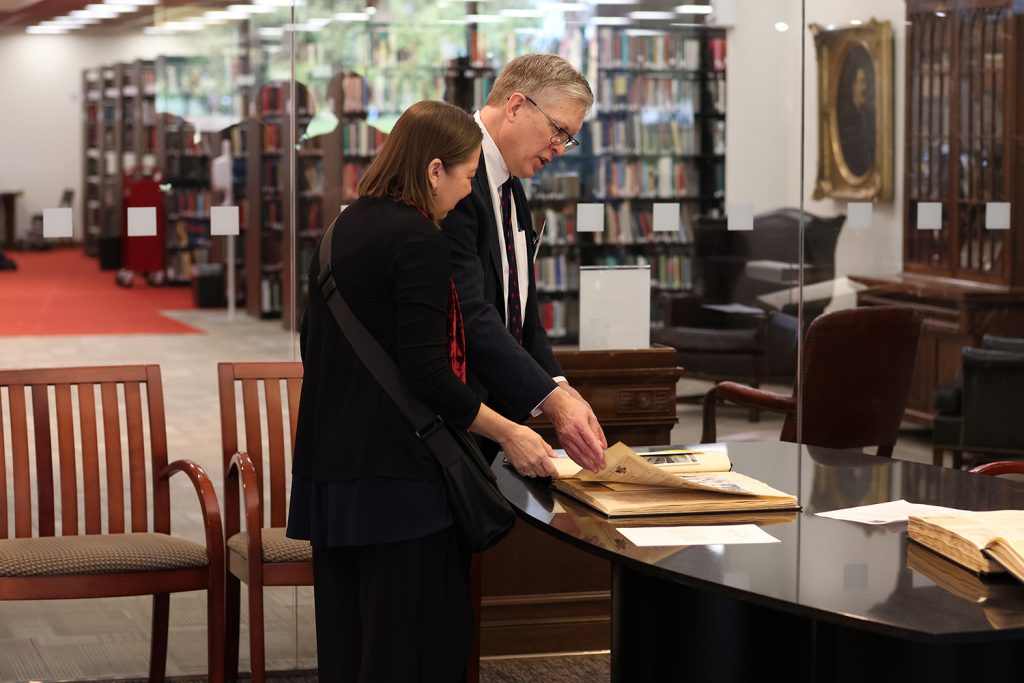
On November 22, Judge J. Michelle Childs of the D.C. Circuit Court of Appeals delivered the Frank M. Johnson, Jr. Memorial Lecture in Constitutional Rights and Liberties as part of a reunion hosted for former clerks of Judge Johnson and the Law School community. In her address, Judge Childs emphasized the lasting importance of voting rights—which Judge Johnson fought to uphold throughout his judicial career. Following the lecture, Daiquiri Steele, Associate Professor of Law, provided a reflection on the lecture and moderated a question-and-answer session.
“What is one right that enables every citizen to shape laws, elect leaders, and influence policies that govern all aspects of our society?” Childs asked. “It is the right to vote… As the late representative and civil rights hero John Lewis once said, a vote is precious, almost sacred. It is the most powerful non-violent tool we have to create a more perfect union.”
During the reunion, John M. Giggie, Assistant Professor of History and Director of the Frances S. Summersell Center for the Study of the South at UA, spoke about his new book, Bloody Tuesday: The Untold Story of the Struggle for Civil Rights in Tuscaloosa. The discussion was moderated by Anil Mujumdar, Assistant Professor of Law in Residence and Assistant Dean for Leadership and Professional Identity.
Reunion participants also took a hallowed grounds tour, led by Erin Stoneking, UA Assistant Professor of Gender and Race Studies and traveled to the Birmingham Civil Rights Institute and 16th Street Baptist Church in Birmingham. There, Assistant Dean Mujumdar led a panel discussion with former Senator Doug Jones and Lisa McNair, the sister of Denise McNair, one of the victims of the 16th Street Baptist Church bombing. Click here to view photos from the reunion.
About Judge Frank M. Johnson, Jr.

In 1955, President Dwight D. Eisenhower selected Judge Johnson to serve on the U.S. District Court for the Middle District of Alabama. Just weeks after he arrived in Montgomery, Rosa Parks refused to comply with the municipal ordinance segregating bus lines in the city.
During his tenure, Judge Johnson issued decisions that desegregated buses in Montgomery and schools in Alabama, ended the poll tax, protected the Freedom Riders, and granted demonstrators the right to march from Selma to Montgomery in support of voting rights. He also presided over systemic reform litigation in the arenas of voting rights, employment discrimination, disability justice, and prisoners’ rights.
About the Judge Frank M. Johnson, Jr. Collection at Alabama Law

In November 2000, Judge Johnson’s wife, Ruth Johnson, donated the items in the Collection to the Bounds Law Library at the University of Alabama School of Law where it is housed in the library’s John C. Payne Special Collections. The Collection includes seven scrapbooks dated from 1955 to 1993, which cover the various phases of Judge Johnson’s career. In addition, the collection includes several videotapes and letters written in 1995 from Reverend Theodore Hesburgh, President Bill Clinton, and Senator Daniel Patrick Moynihan.
The initial scrapbook was begun in 1955 by Johnson’s law clerk David A. Bagwell who wrote “in hopes that others might share some of the reasons we admire Judge Johnson so much.” Subsequent clerks through the years continued the practice. The scrapbook collection provides a valuable resource for research into Judge Johnson’s distinguished career.
You can find the catalog record and finding aid here. To schedule an appointment to visit the Collection, please contact David Durham: ddurham@law.ua.edu.